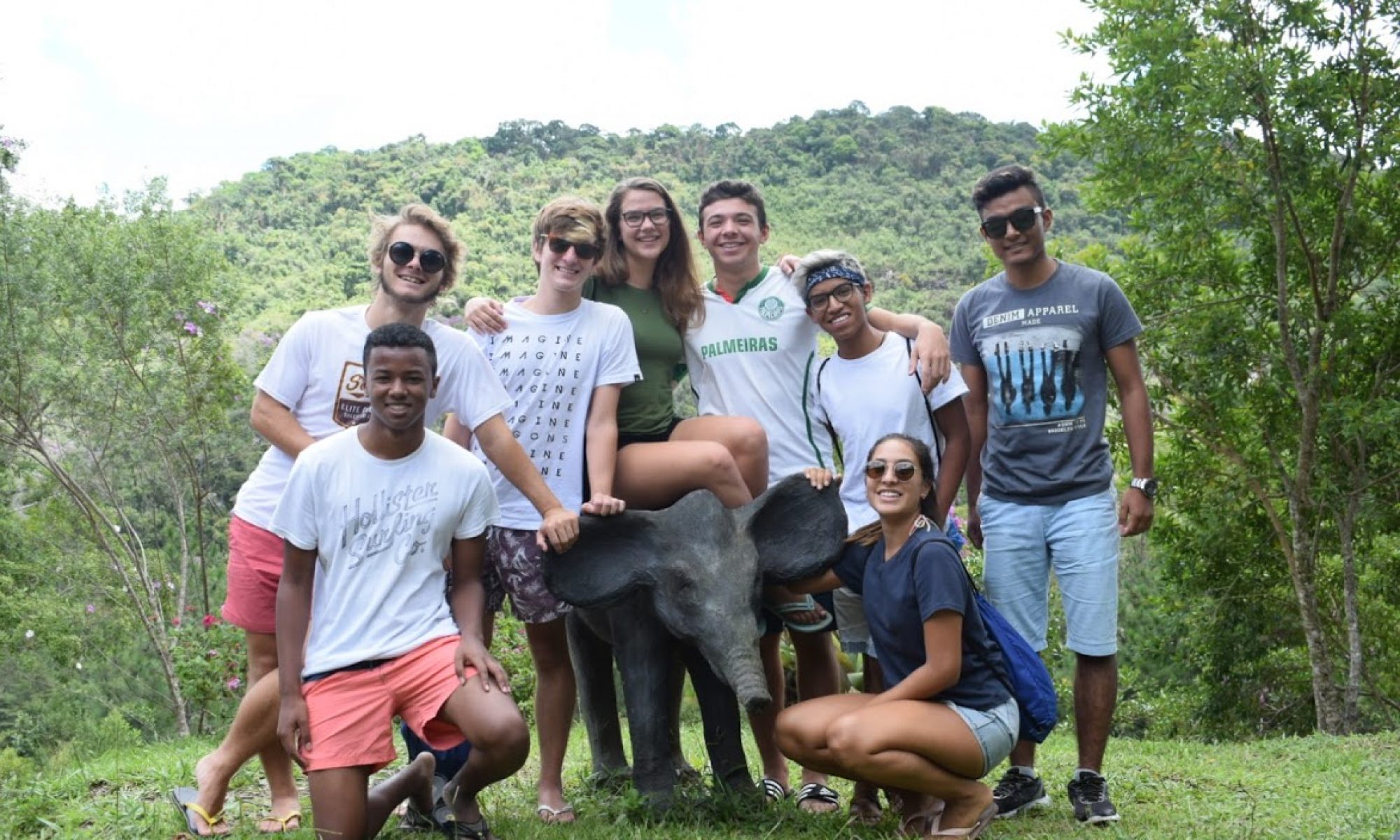by Sam, Tufts 1+4 Participant
I stood nervously before 40 sweat-suit clad middle schoolers. All my attempts to get through to them had failed, and their faces were all colored with looks of confusion mixed with mild disinterest. Panic began to creep over my face as I thought to myself, “Oh no! What if I won’t be able to teach these children to form sentences using simple past tense verbs about my trip to Ingapirca this weekend?” Then I took a second to actually think about what would happen, and I slowly came to my senses.
I’ve now been working at the Unidad Educativa Mileno (UEM) Sayausi for over a month now, and my days have been filled with watching, helping, and leading English classes for students ages 12 through 18. I’ve come to the conclusion that I’ve been taking my job too seriously. So what if I can’t get the students to conjugate some past tense verbs? If all else fails, the trained, professional teacher in the room will step in and get the class back on track. I came into this volunteer role expecting myself to have immediate success in not only teaching English, but also managing forty rowdy children at a time. Clearly, I set myself up for failure. After getting to know the students, teachers, and my own limitations better, I have completely changed my outlook on what I should expect of myself.
My job isn’t to be an English teacher. Not only is that a far too vague and difficult goal for me to set for myself, but it would be a disservice to the students to have an untrained and unfamiliar 18 year old try to teach them a foreign language, while not having mastered their native tongue. I’ve been lucky enough to be surrounded by capable English teachers who know what they’re doing. Instead, my job is to be a role model for the kids. Be respectful, kind, and engaging to everyone I see, always pay attention to what the teacher is saying even if I’m not the one supposed to be learning, and every now and then lend a hand with grading, pronunciation, spelling, or anything that the students or the teachers may need. I’m not going to fundamentally change anyone’s life, or challenge anyone’s way of thinking, but I think in this way I can help reinforce good life habits in the students, and help make everyone’s life a little bit easier.



 The very first day I moved in with my host family, they warned me not to be scared of Osa when she barked at me. The street I live on is comprised of many little “gated communities”, which are just 7-10 row houses with their own gate that requires a key. Osa is the large German Shepard that lives in the very first house of my “gated community.” She sits behind the gate to her own house all day long, lying on her step, waiting for passersby. She is a moody dog to say the least.
The very first day I moved in with my host family, they warned me not to be scared of Osa when she barked at me. The street I live on is comprised of many little “gated communities”, which are just 7-10 row houses with their own gate that requires a key. Osa is the large German Shepard that lives in the very first house of my “gated community.” She sits behind the gate to her own house all day long, lying on her step, waiting for passersby. She is a moody dog to say the least.


